
Hands Pounding Desks
There I was, standing in front of 70 businesspeople and software developers visiting from India, watching them pound on table tops.
My career as an innovation and entrepreneurship expert has taken me to dozens of countries, so I’m familiar with differences in cultural communication. Case in point: I know that Indians shake their heads in a way that means “yes’ that comes across as “no” to American audiences.
What was new to me, however, was a tradition at the S.P. Jain Institute of Management and Research (SPJIMR) in Mumbai: when people from this institution want to applaud something, they start pounding table surfaces.
It sounded like a stampede!
The table-pounding incident occurred two hours in to our session. The teams had spent the morning using a Natural Language Processing AI prototype (based on Open AI’s GPT-2) to brainstorm opportunities to deploy AI inside their orgs back home in India. Later, we had sparked a debate around competitive strategy, and one of the executives made a clever point. A few participants started pounding to acknowledge the remark, and soon the noise filled the room.
These individuals, executive education students from SPJIMR, were visiting Austin and the McCombs School of Business at the University of Texas. The goal of the workshop was simple: expose professionals to AI and help them understand its implications for business.
Business Tech of Tomorrow, Today
Thanks to massive growth in cloud computing and increasing availability of large data sets, access to AI is increasing; however, there is a long way to go. The technology and compute required is still expensive and in the hands of a relative few—mostly academics and a small subset of technology workers.
Most organizations have no AI strategy and simply have no basic knowledge of the concepts and practice of the technologies. Unless you work in the right group at Google, Netflix, or Facebook, opportunities to incorporate Artificial Intelligence/Machine Learning into a product or service are rare.
Perhaps this explains the excitement of the participants. They know AI literacy matters, but hands-on experiences are in short supply. The workshop gave participants something rare: access to a GPT2-based Natural Language Processing AI tool, and a structured process to explore this tech for business impact.
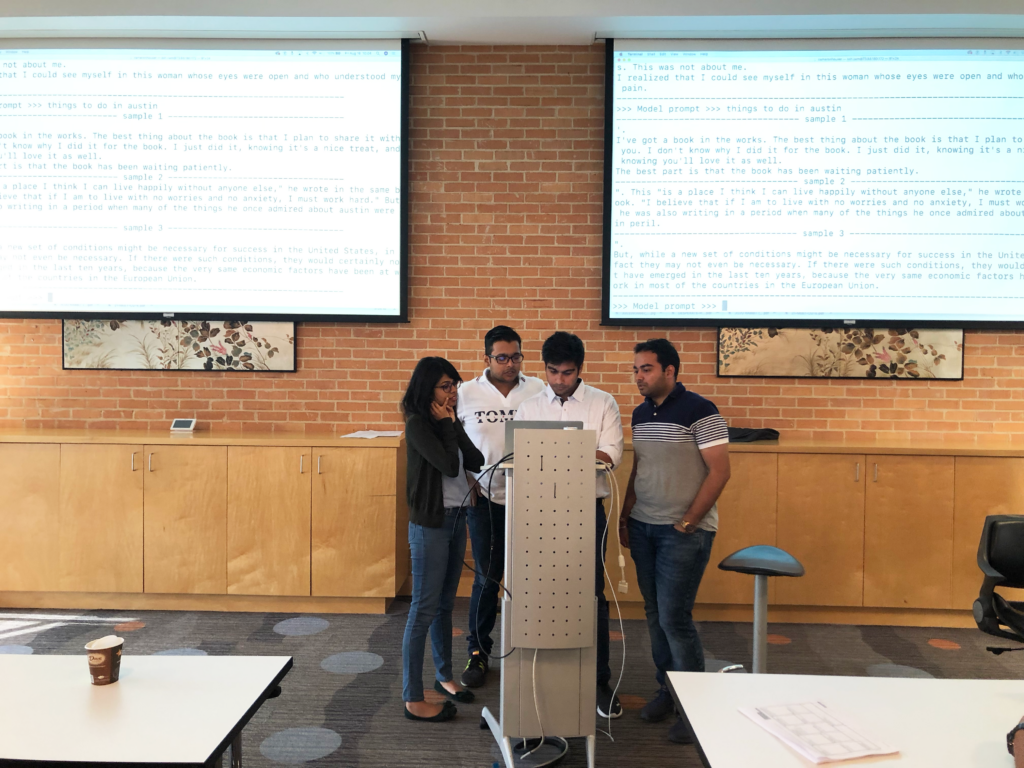
80% Doing, 20% Talking
The workshop emphasized action: Less than 20% percent of the session focused on traditional classroom instruction. The traditional aspects included the following:
- A lecture on the history of AI, Machine Learning, Natural Language Processing, and an overview of key concepts
- Stories exemplifying AI’s use in business
- Sessions focused on how AI will impact careers and AI ethics/safety
The remaining 80% focused on high-energy, experiential learning. Guided by a facilitator, the participants used our AI tool to ideate applications that would solve customer problems and serve a wide range of markets. The solutions they generated used AI to solve problems such as:
- Streamlining contract document creation for small business owners to save money on legal fees
- Improving the international traveler tourist experience through personalized tour guides
- Helping call center workers provide better customer service through dialogue prompts
Rapid Experiential Learning Through Artificial Time Constraints
The experiential learning component of the workshop imposed tight timelines: teams had less than an hour to familiarize themselves with the prototype and brainstorm business applications before they could start fleshing out concepts.
The teams created and contributed in a fast-paced entrepreneurial environment. Believe me, I heard “we need more time!” more than once. But tight timelines are a gift in that they are a vehicle to learn rapid, startup-style execution.
This style of execution—which emphasizes action—sped teams to the roadblocks and issues in their plans. Like startups, they adjusted and found alternate ways to move forward.
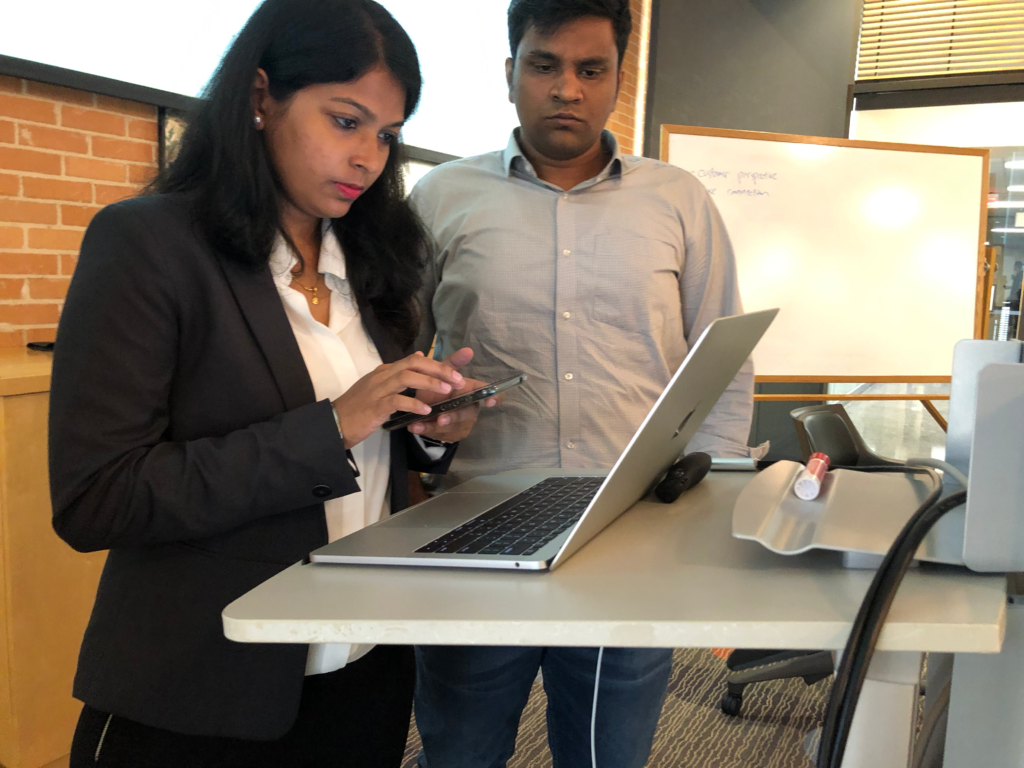
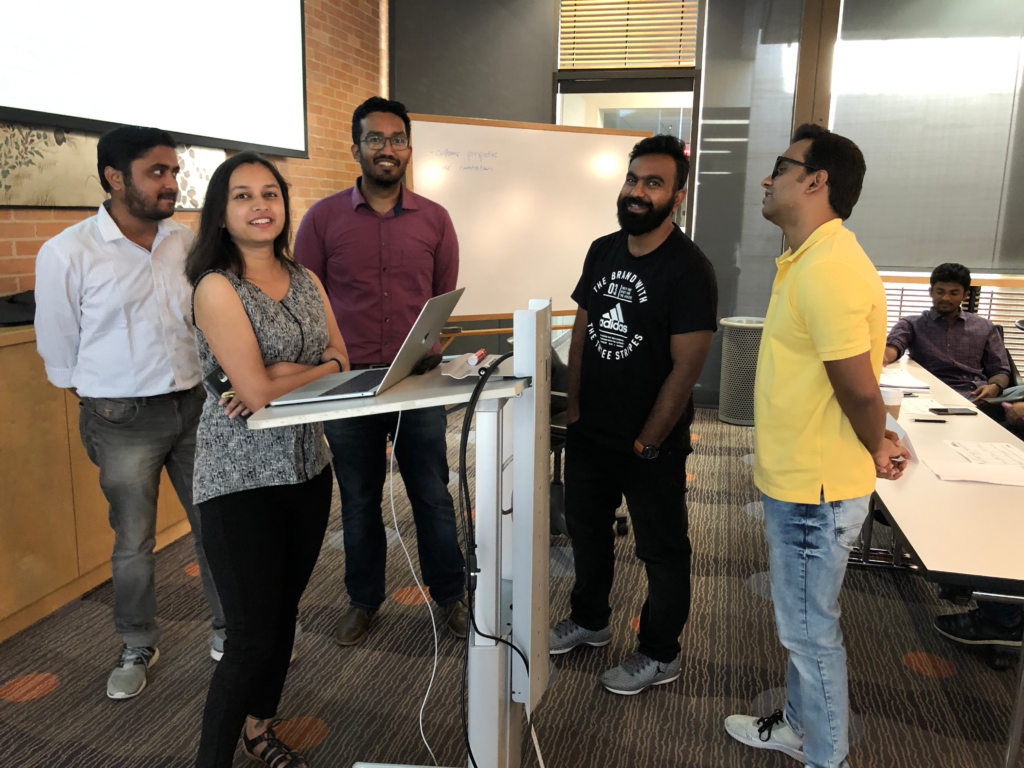
This process can feel chaotic and freeing at the same time. Teams learn the value of rapid decision-making, strong execution, and new takes on how failure can be a valuable learning experience.
After three hours, the teams were ready to prepare a four minute pitch encapsulating their ideas and value propositions behind those ideas. Peer teams provided feedback to one another after each pitch and were invited to ask questions. The ideas were critiqued, re-explained, and iteratively improved.
The final concepts spanned all manner of industries, some of which are already deep in AI practices and others yet to be affected. Some projects connected directly to high priority corporate projects back home, such as an application to extract trend insights from an inventory management system. Other projects were completely “blue ocean” in that they involved entirely new markets for their organizations, that, when addressed with AI, become accessible. Regardless of relevance, one outcome shone through with every team: hands-on experience and the entrepreneurial mindset is a powerful combination for demystifying the promise of emerging technologies.
When the workshop was finished and I requested feedback and constructive criticism, several participants remarked something along the lines of “I didn’t know we could move this fast!”
Upwardly Mobile Careers Through AI Literacy
Understanding AI and seeing the world with an entrepreneurial mindset position one for the workplace of the future. These two forces, when combined with enthusiasm and a little elbow grease, provide a professional with the tools to prosper in the 21st century workplace.
The participants left the workshop able to say what few can: they have designed a product or service leveraging AI, integrated it into a business concept, and developed a business case for developing that product.
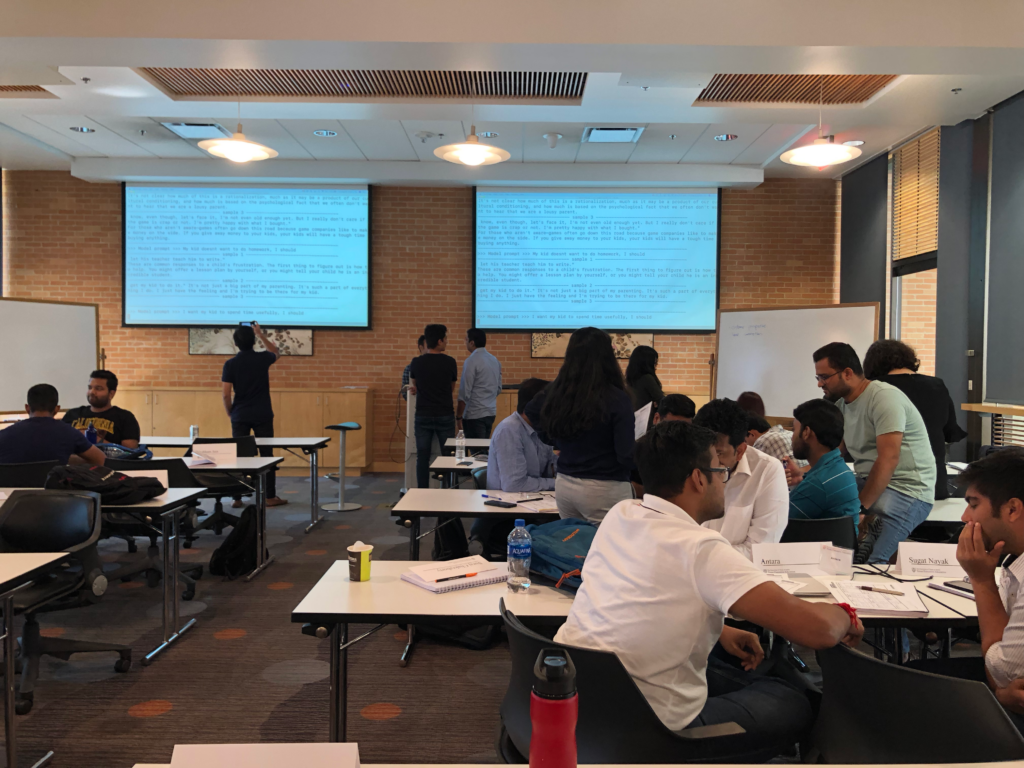
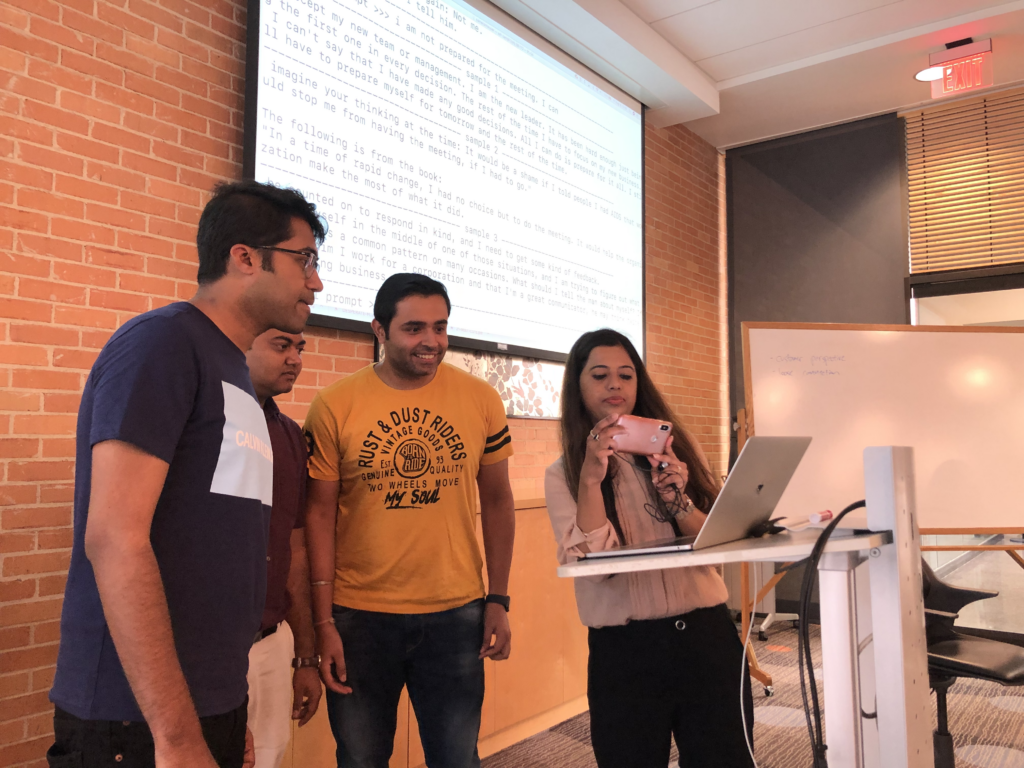
Special thanks to the S.P. Jain Institute of Management and Research and Texas Executive Education at the McCombs School of Business at the University of Texas.